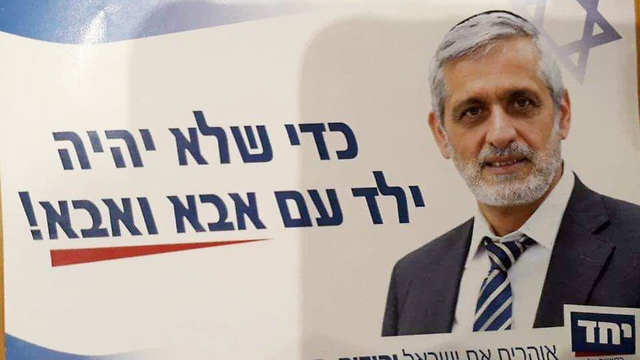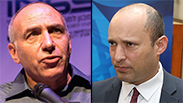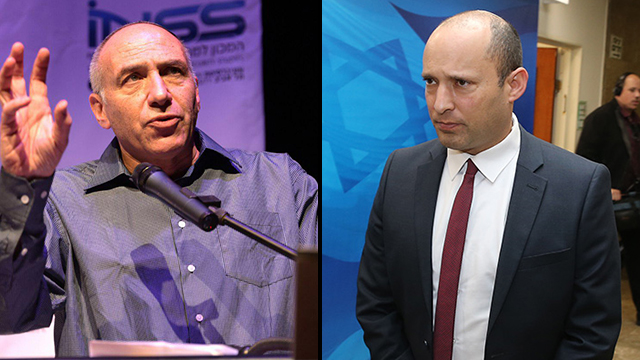As the election campaigns ramp up ahead of the April 9 elections for the Knesset, Israelis are being exposed to borderline wanton behavior by the candidates seeking to claim a seat in the next parliament.
Downright ugly statements made in recent days beg the question of how low our politicians are willing to go in their bid to garner any advantage at the ballot box.
Moti Yogev of the Jewish Home is one such politician. The MK who once threatened to send bulldozers to raze the High Court of Justice has now directed his vitriol at former Jewish Home leader Naftali Bennett, who recently left to form a new party.
"Not only did he abandon his political home, religious Zionism, he also raped it," said Yogev. After a while he regained his composure and apologized for his words, but the damage was done.
A few hours earlier, a social media post was made showing former Shas chief Eli Yishai with the slogan "a child should not have a father and father."
Yishai claimed that this ad was not part of his election campaign, but all the evidence indicated that the ad actually originated with his camp.

This phenomenon is not restricted to the smaller parties, who are scrambling to ensure that they even have Knesset representation. Prime Minister Benjamin Netanyahu, who also serves as defense minister, is entitled to enjoy the benefits that come with the posts he holds. But his recent use of the IDF - especially in pictures with soldiers - has led the attorney general to issue a directive forbidding him to drag the army into his election campaign.
And it's not just images. The public is entitled to demand that Netanyahu handle the sensitive security information entrusted to him with excessive care. He does not have the authority to reveal all manner of defense operations or military strikes, which have until recently been subject to a strict policy of ambiguity, solely to increase his chances of reelection as prime minister. Nor is there anything encouraging about the criticism on this issue from his main rival Benny Gantz. Israel's security interests should not be used in the service of any candidate, and Gantz has only added to the trend of making the IDF into a political tool.
Exploiting security incidents from the past to damage an opposing candidate is also out of bounds. Netanyahu's Likud party has been using the death of Druze Border Police officer Madhat Yousef at the start of the second intifada to attack Gantz. Yousef bled to death during riots at Joseph's Tomb in the West Bank in October 2000, while Gantz, who was then commander of the Judea and Samaria Division, led the ultimately futile attempts to rescue him.
The Likud use of the tragedy for elicited a furious response from the fallen officer's family. Madhat's brother, Mahdi, demanded that Netanyahu "end the cheap propaganda and take my brother's name off the political field."
In the past, in other elections, joint committees helped various parties reach agreements on what was acceptable, and in some cases even remove offensive broadcasts from the public domain. In other words, there was once an attempt to keep elections civil and avoid personal attacks on individual candidates.
But now, perhaps due to the endless channels of communication and the ability to hide behind anonymous identities on social networks, it seems that all the dams have been breached and anything goes.




















